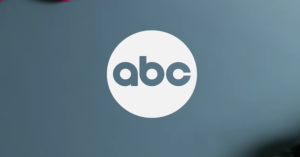Groups representing Indigenous communities called out ABC over Big Sky, its new Montana-set police drama created by Big Little Lies executive producer David E. Kelley. The groups sent a letter just before the show premiered last week, asking the network to “enter into a dialogue” about representation. The series centers on the disappearance of two sisters and other abductions, but the Indigenous groups are concerned that the series ignores the growing number of missing or murdered Native American and Indigenous women in the U.S.
The letter was signed by Rocky Mountain Tribal Leaders Council executive director William F. Snell, Coushatta Tribe of Louisiana chairman David Sickey and Global Indigenous Council president Tom Rodgers, reports The Hollywood Reporter. They share “serious concerns of at best, cultural insensitivity, and at worst, appropriation, in respect to the soon-to-be premiered series, Big Sky,” the letter reads. The group, who are all producers on the documentary Somebody’s Daughter, addressed their concerns to Kelley, ABC Entertainment president Karey Burke and executive director of corporate responsibility David Ambroz. ABC has not commented.
Videos by PopCulture.com
Big Sky is based on C.J. Box’s novel The Highway. The show centers on a former police officer (Katheryn Winnick) and a private detective (Kylie Bunbury) who investigate the disappearance of two sisters in Montana. Their investigation reveals the disappearances are connected to other unsolved cases. the show premiered on Nov. 17, with new episodes airing Tuesdays at 10 p.m. ET.
The Indigenous groups’ leaders were disappointed that Big Sky and its source novel do not “address the fact that the disproportionate majority of missing and murdered women in Montana are Indigenous, a situation replicated across Indian Country, which has made this tragedy an existential threat to Native Americans.” Ignoring this and portraying this devastation with a “white female face” is “the height of cultural insensitivity, made even more egregious given the national awakening to the need for racial justice,” according to the letter.
Later, the groups’ leaders wrote that it is there “sincere hope” the network will meet with them to talk about an “information frame at the end of future Big Sky show credits that directs viewers to the Somebody’s Daughter documentary and factual information on the Murdered and Missing Indigenous Women crisis.” They believe adding this will be an “important signal of your willingness to work with other entities to ensure that the magnitude of the MMIW crisis is not diminished… It would be extremely unfortunate for you to miss this opportunity to tell the entire, truthful story.”
The FBI’s report on missing person statistics from 2019 listed over 10,000 missing persons of “Indian” descent, but community leaders and activists believe this is only a small portion of members of the community who go missing. In 2019, Attorney General William Barr launched the Missing and Murdered Indigenous Persons Initiative to put more resources on the issue.
After Big Sky premiered, two more Indigenous organizations joined the protest, reports THR. The Union of BC Indian Chiefs and The Great Plains Tribal Chairmen’s Association both issued press releases earlier this week. The UBCIC asked ABC to “address and rectify its incomplete depiction of violence against women and girls” and hopes ABC adds text at the end of each episode urging viewers to seek more information on missing and murdered Indigenous women.





